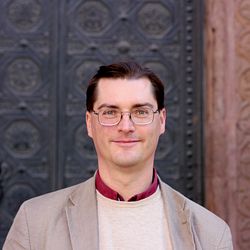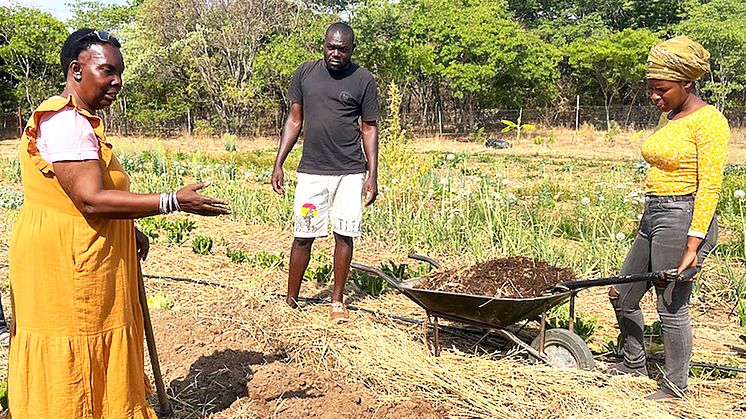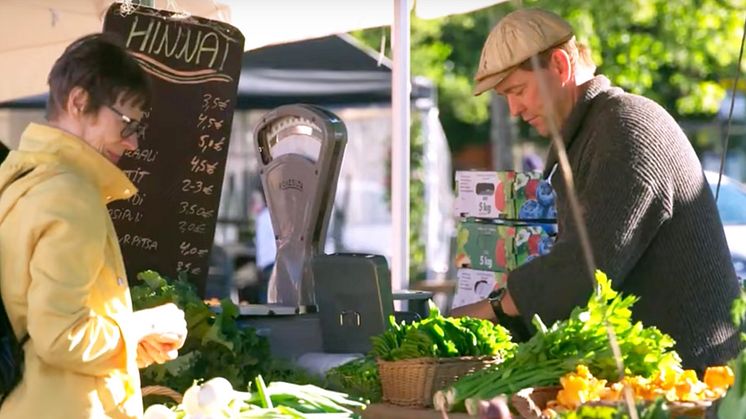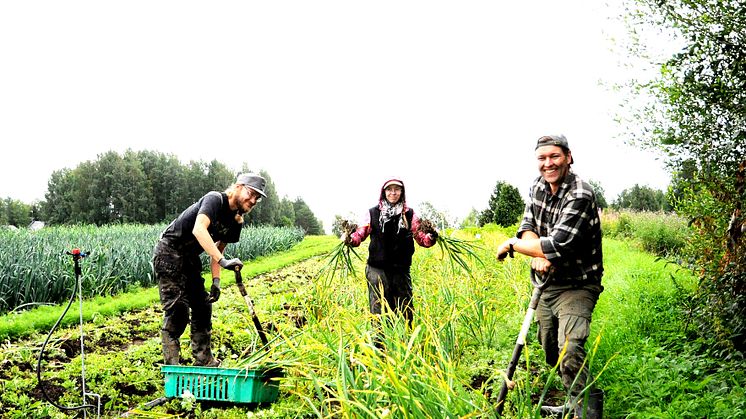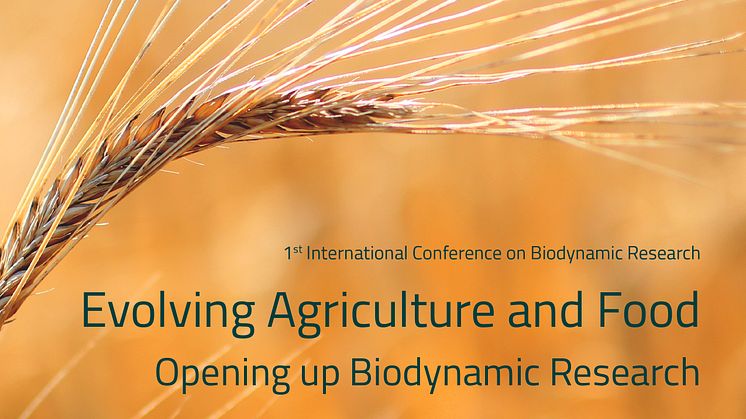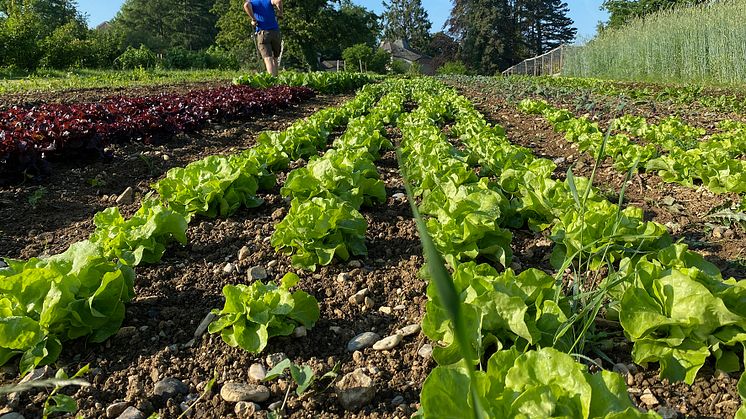
Press release -
«Farming without pesticides is possible»: The contribution of biodynamic farming to the earth‘s health
Goetheanum, Dornach, Switzerland, 18 June 2021
«Farming without pesticides is possible»
The contribution of biodynamic farming to the earth‘s health
Biodynamic farming is proof that agriculture without pesticides is possible. Introduced a hundred years ago, it is by now even applied to demanding cultures such as fruit, cotton, wine, coffee and bananas.
“It is possible to feed the world population with organically grown food,” says Ueli Hurter, who is a biodynamic farmer and co-leader of the Section for Agriculture at the Goetheanum, adding that “it can be done if we farm organically, reduce the consumption of meat and get a grip on food wastage.”
Benno Otter is a biodynamic gardener. He and his team are looking after the Goetheanum gardens and parkland which cover around ten hectares of productive land where no pesticides have ever been used. One can do this, he says, if one respects a place without imposing something on it in order to force something out of it. “Doing the right thing in the right place means asking oneself: why should one grow wine here at the Goetheanum, if there are more suitable places for that elsewhere and if it requires more input than growing standard fruit trees?” Production and aesthetics, he thinks, can come together on the meadows. The mowing model used allows for the consideration of insects, people‘s recreational needs and winter feed for the cows.
Since its beginnings in the 1920s, biodynamic farming has seen its fair share of challenges. In addition to common types of grain and vegetable, it now provides demanding cultures such as fruit, cotton, wine, coffee and bananas. In addition to alternatives to pesticides “it requires comprehensive measures including, for example, tillage, choice of varieties, manuring, crop rotation and crop management. It is about working from the periphery towards the individual detail,” Ueli Hurter points out, adding that “over and above analytical and nutritional-physiological parameters, it is essential that we create a holistic approach to food and change the entire system.”
(1923 characters/SJ; translation by Margot M. Saar)
Web www.sektion-landwirtschaft.org/en
Web (in German) gaertnerei.goetheanum.org
Study on the performance of biodynamic farming (published on 14 November 2017 in ‹Nature›) doi.org/10.1038/s41467-017-01410-w
Contact persons
Ueli Hurter, landwirtschaft@goetheanum.ch
Benno Otter, gaertnerei@goetheanum.ch
Related links
Topics
Categories
The Goetheanum is the headquarters for the School of Spiritual Science and the General Anthroposophical Society. The School of Spiritual Science with its eleven sections is active worldwide in research, development, teaching, and the practical implementation of its research findings and is supported by the Anthroposophical Society.

